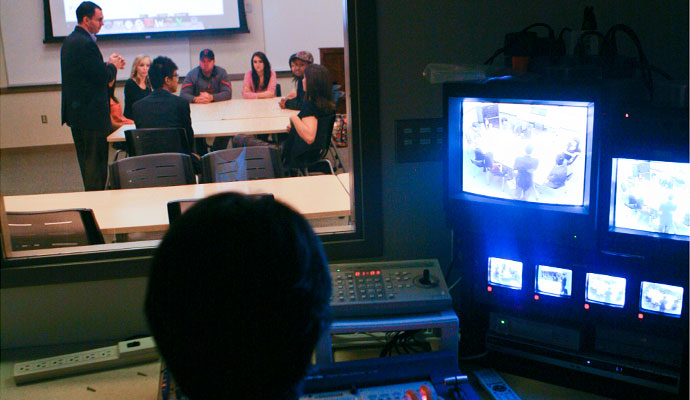Focus Group Lab

A focus group is a form of qualitative research in which a group of people is asked about attitudes toward a product, concept, advertisement, idea, or packaging. Questions are asked in an interactive group setting where participants are encouraged to talk with other group members. Focus groups are a powerful means of evaluating services or testing new ideas. Ultimately, focus groups allow companies wishing to develop, package, name, or test market a new product, to discuss, view, and/or test the new product before it is made available to the public. This can provide invaluable information about the potential market acceptance of the product.
In traditional focus groups, a pre-screened (pre-qualified) group of respondents gathers in the same room. They are pre-screened to ensure that group members are part of the relevant target market and that the group is a representative subgroup of this market segment. There are usually 8 to 12 members in the group, and the session usually lasts for 1 to 2 hours. A moderator guides the group through a discussion that probes attitudes about a client's proposed communications, products or services. The discussion is unstructured (or loosely structured), and the moderator encourages the free flow of ideas. Although the moderator is seldom given specific questions to ask, he/she is often given a list of objectives or an anticipated outline.
Client representatives may observe the discussion from behind a one-way mirror. Participants cannot see out, but the researchers and their clients can see in. Usually, a video camera records the meeting so that it can be re-screened and transcripts can be created from the video tape. In coding focus group communications, researchers are able to examine more than the spoken words. Researchers may interpret facial expressions, body language, and group dynamics as well.
College of Media & Communication
-
Address
Texas Tech University, Box 43082, Lubbock, TX 79409 -
Phone
806.742.6500
